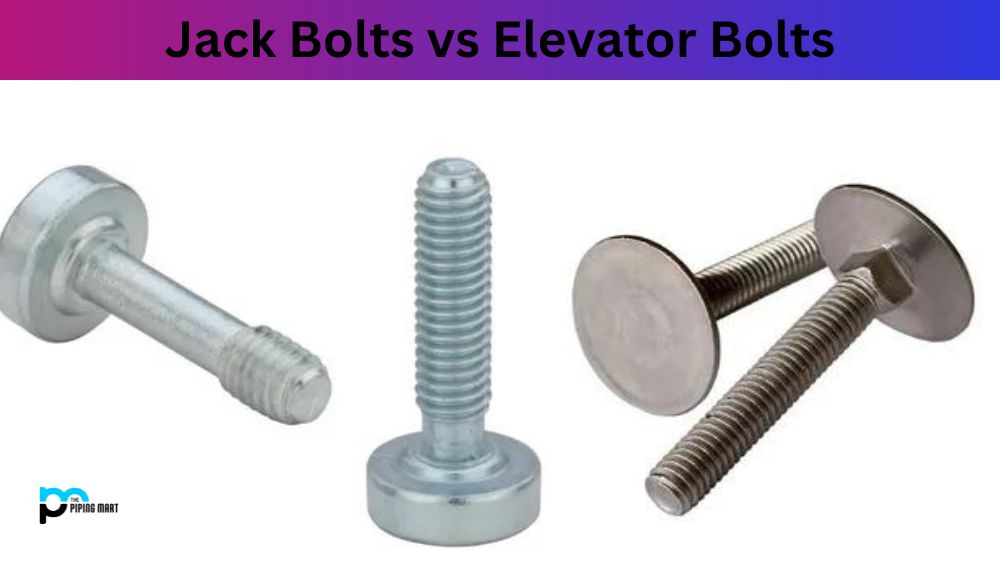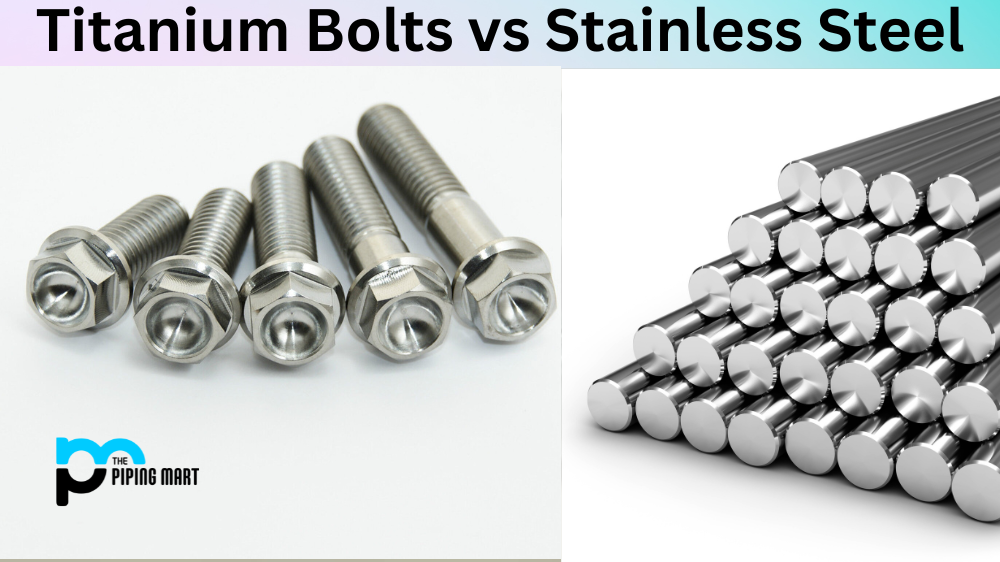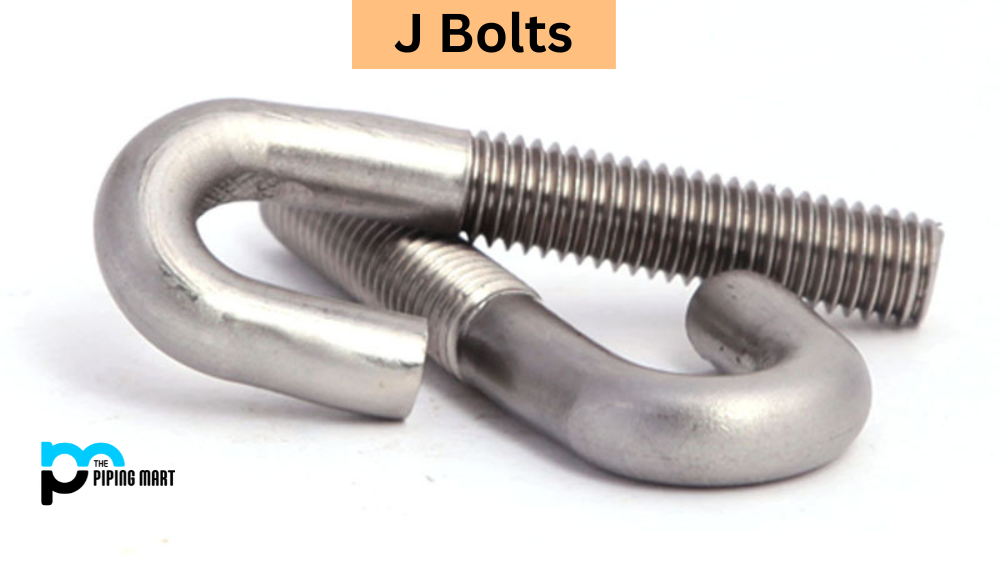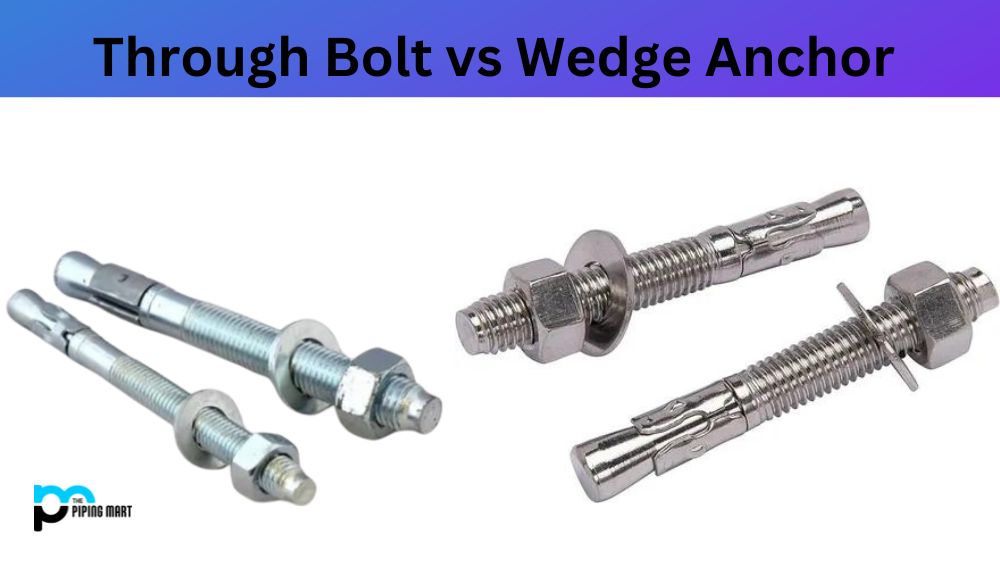When assembling heavy-duty machinery and equipment, bolts are an essential component. However, not all bolts are created equal. When choosing the right type of bolt for specific applications, it’s important to consider various factors such as the size of the machinery, the level of stress it will be subjected to, and the environment in which it will be used. Two of the most common bolts used in heavy-duty machinery are jack and elevator bolts. In this blog post, we will examine the differences between these bolts and when to use each type.
Jack Bolts
Jack Bolts are high-strength fasteners used to secure two or more parts together. They are often made from alloy steel for increased durability and strength and can be found in various sizes, head styles, thread types, lengths, coatings/finishes, and materials such as stainless steel or galvanized. Additionally, they provide superior tensile strength than screws with the same diameter and length. Generally speaking, Jack Bolts have a threaded shank engineered to fill the entire length of a drilled hole, enabling it to make full contact with all adjacent surfaces while also reducing stress concentrations and fatigue cracking associated with weaker fasteners over time.
Elevator Bolts
Elevator bolts are specifically designed fasteners typically used in the aviation and automotive industries. They feature a special head design with a round hole in the center, allowing them to be driven by an elevator or similar driving tool for installation. They are made out of hardened steel and feature a high-strength thread design that gives them increased torque resistance capabilities. Their small profile helps reduce weight but ensures strong clamping forces when properly tightened.
Difference Between Jack Bolts and Elevator Bolts
Thread Orientation:
One of the most prominent differences between jack and elevator bolts is their thread orientation. Jack bolts have a male thread orientation, whereas elevator bolts have a female thread. This means that when the two bolts are used to hold down machinery parts, they require different mating nuts. Jack bolts require a female nut, whereas elevator nuts require a male nut.
Type of Loading:
The loading a bolt will be subjected to is critical when choosing the right type. Jack bolts withstand a shear load, while elevator bolts are designed for a tensile load. That means they are ideal for holding down bedplates, soleplates, and heavy conveyor belts.
Length:
Another difference between jack bolts and elevator bolts is their length. Jack bolts are traditionally longer than elevator bolts and come in lengths of 12 inches and above. Elevator bolts, however, are shorter since they are designed to be used on elevator buckets. They come in lengths ranging from 1 to 4 inches.
Usage:
Jack bolts are typically used to secure large machinery parts such as turbines, generators, and compressors. They’re also commonly used to hold down heavy bedplates and machine bases. On the other hand, elevator bolts are ideal for agricultural and bucket elevator applications. They’re designed to attach the buckets to the belt or chain that moves them.
Materials:
Both jack bolts and elevator bolts can be made of various materials, but the most common materials used for jack bolts are stainless steel and A325 structural steel. Depending on the application, elevator bolts are often made of mild steel or stainless steel. The material selection for a specific application depends on certain factors, like the environment in which the machinery operates, chemical compatibility, and load-bearing capacity.
Conclusion:
Understanding the differences between jack and elevator bolts is crucial when selecting the right type of bolt for heavy-duty machinery applications. While both bolts have similar features, they are designed for different functions. Choosing the right bolt will ensure the machinery operates safely, efficiently, and effectively. When in doubt, it’s always best to seek expert advice.

A passionate metal industry expert and blogger. With over 5 years of experience in the field, Palak brings a wealth of knowledge and insight to her writing. Whether discussing the latest trends in the metal industry or sharing tips, she is dedicated to helping others succeed in the metal industry.




